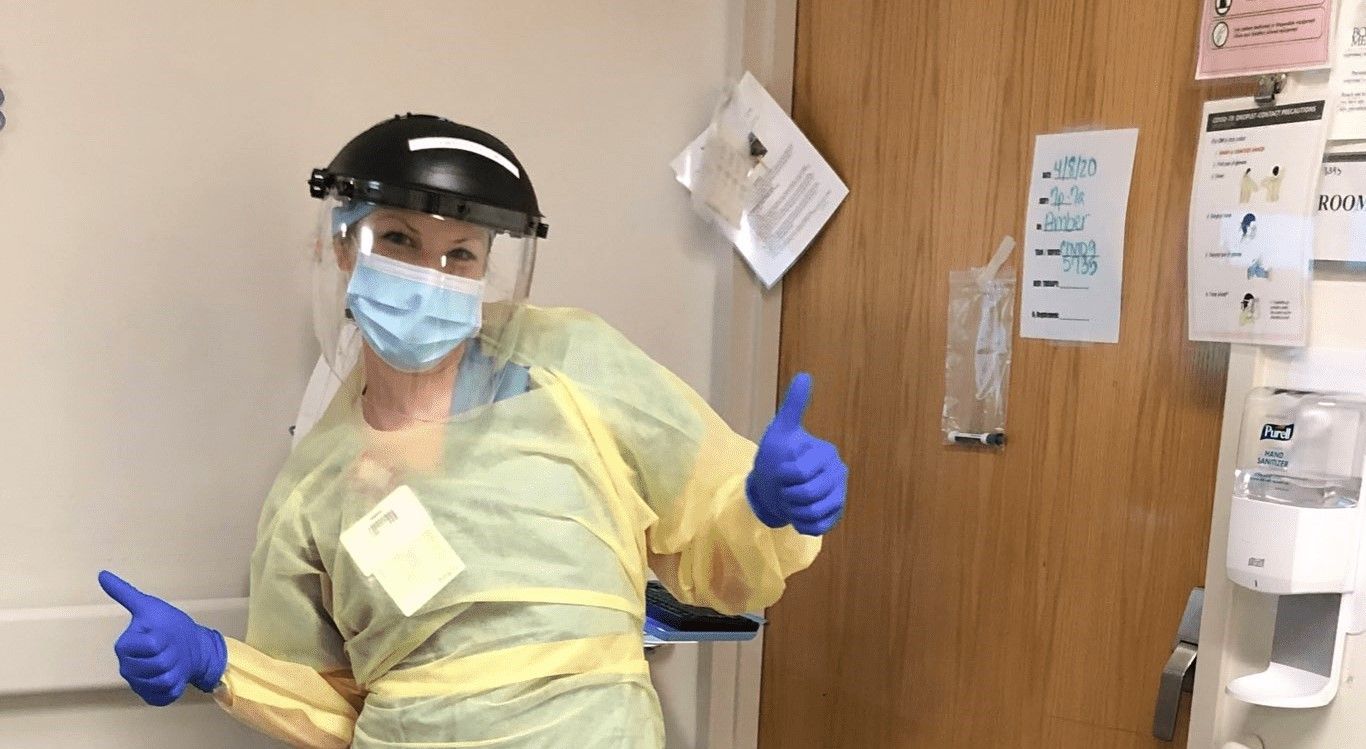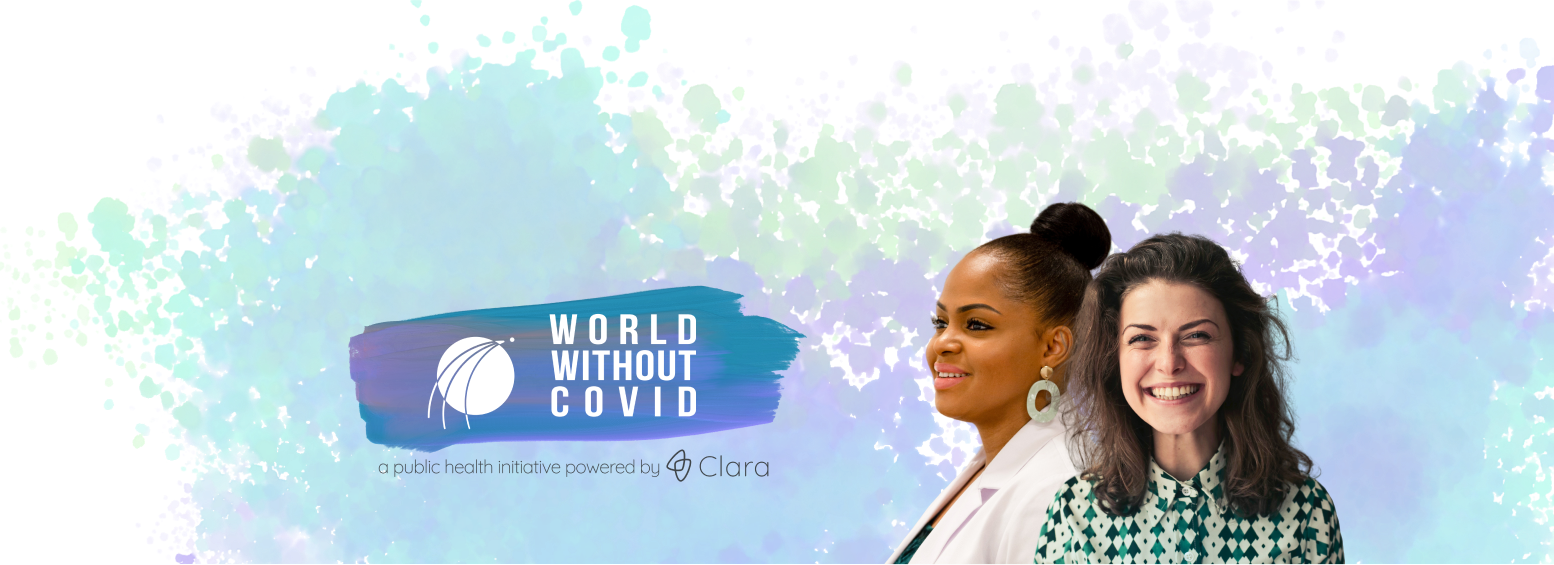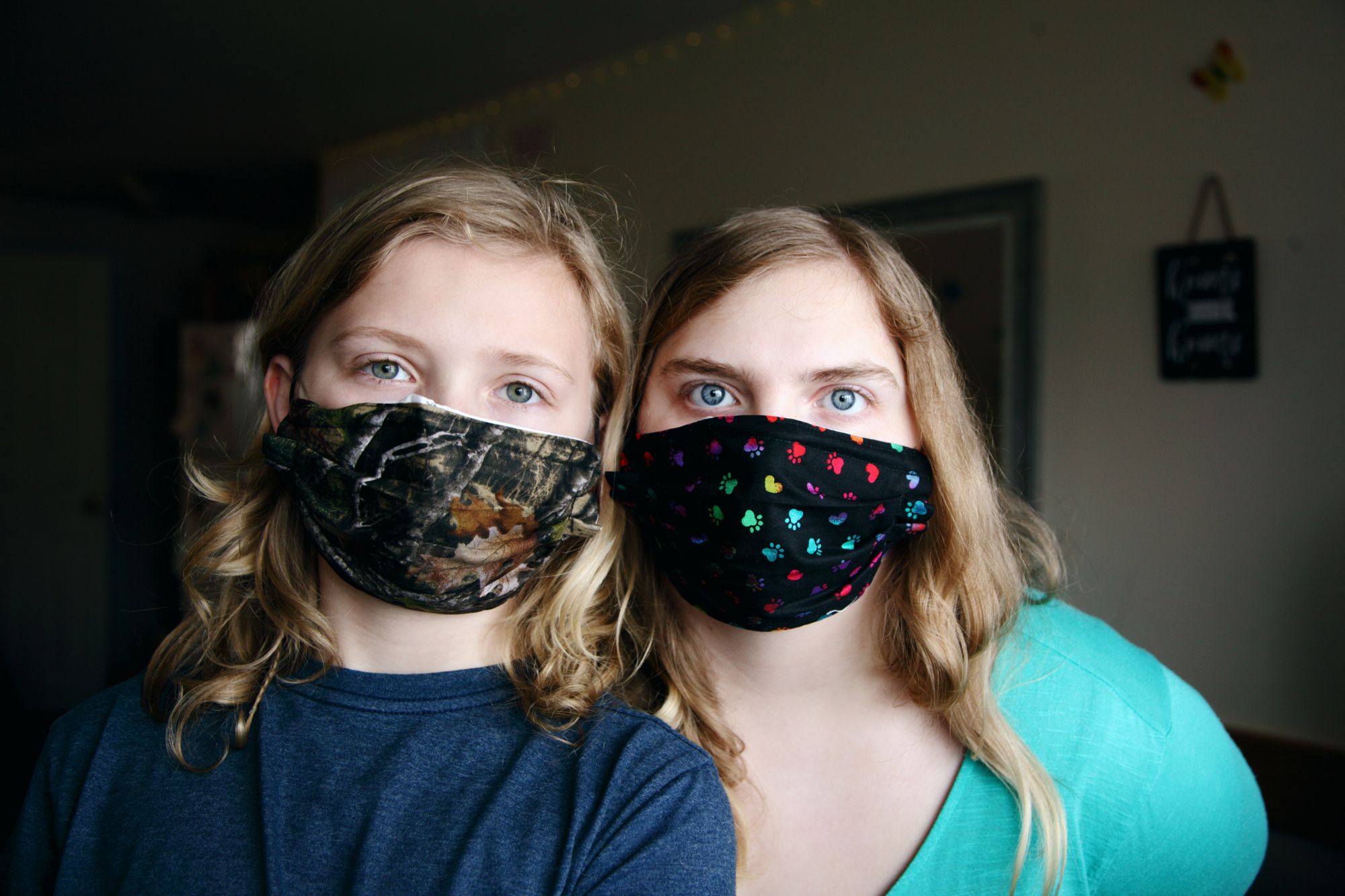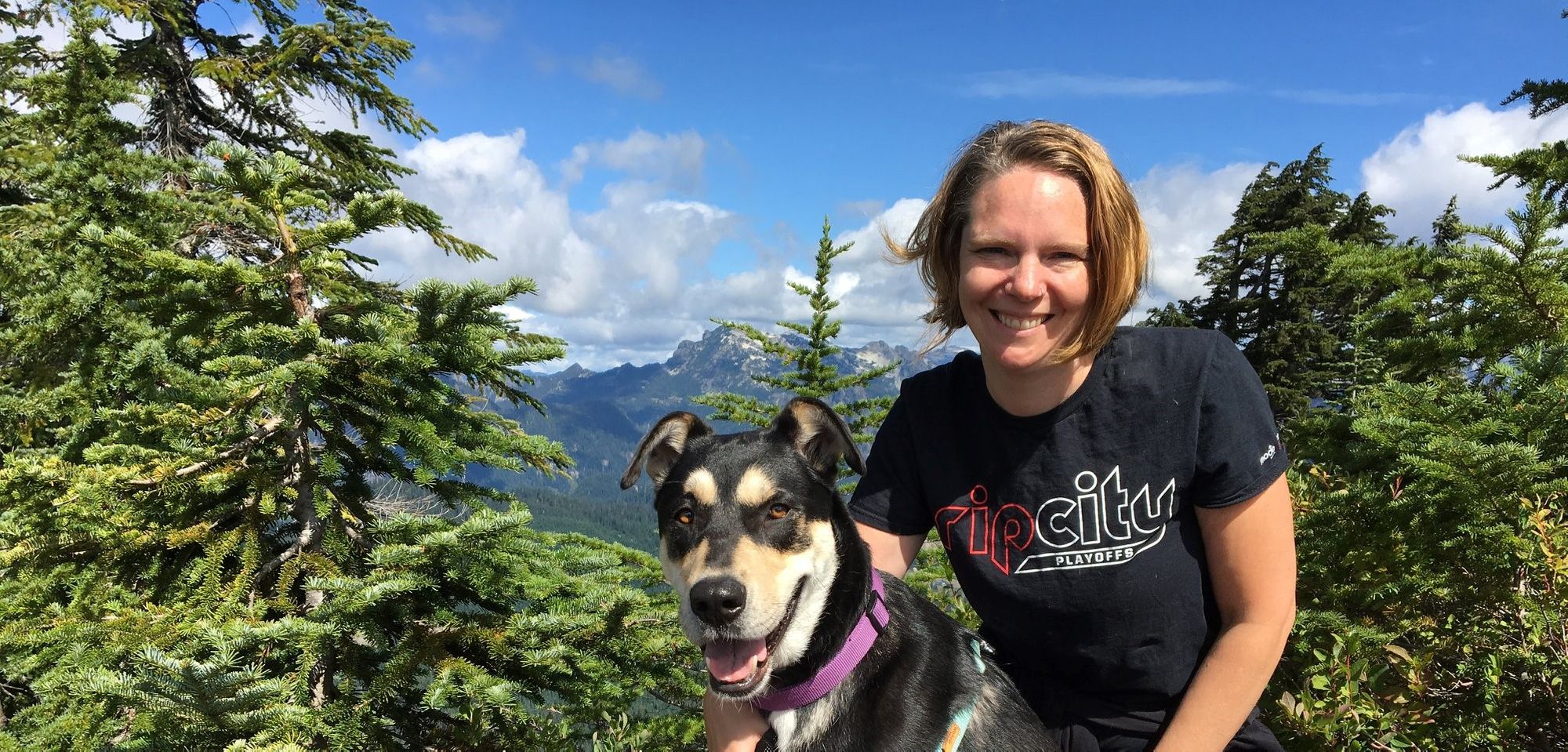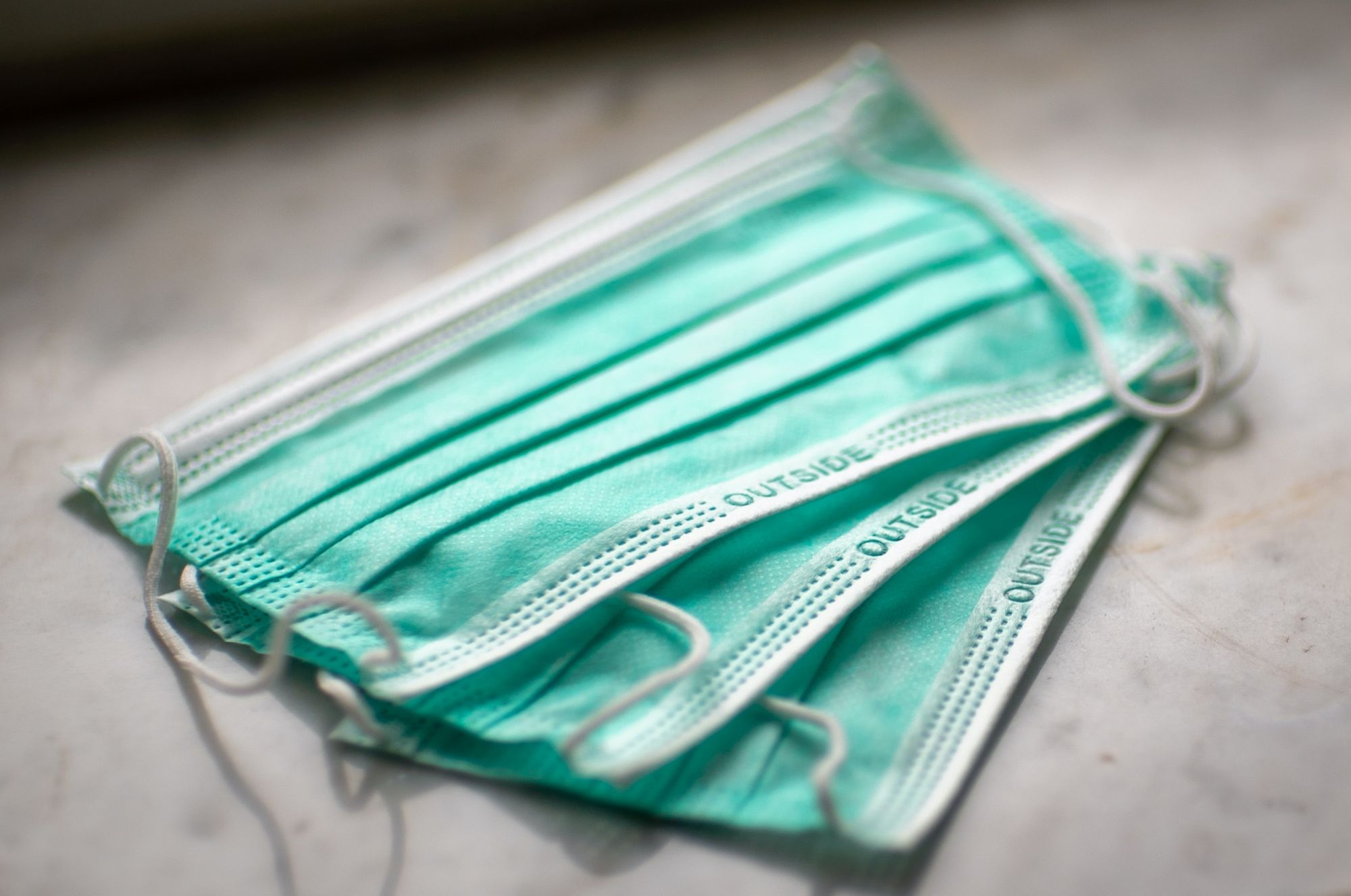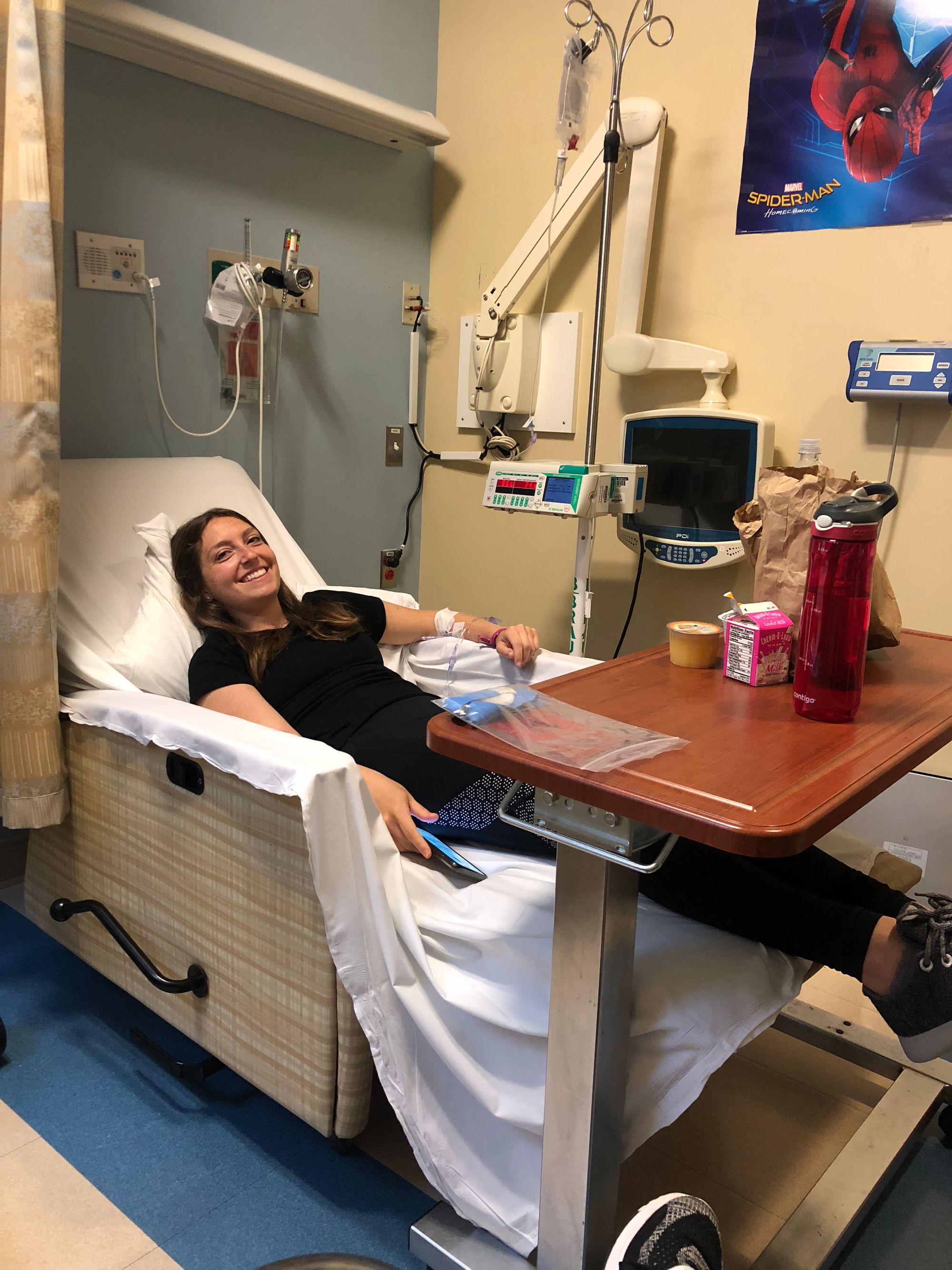My name is Amber Soucy. I am a registered nurse in Boston, Massachusetts. I've been a nurse for about seven years now. I currently work in surgical trauma. I'm also a clinical instructor for advanced medical surgical nursing at a school about seven miles South of Boston. And, I’m on the board of directors for a nonprofit that focuses on strengthening the patient-provider relationship to create better collaboration and teamwork for tailored care plans.
As someone working on the front lines, I’ve experienced a lot of limitations as far as access to personal protective equipment. We've been following the CDC guidelines in relation to what is applicable. There is such a demand, but we're lessening all of our supplies day by day. The biggest fear that I have is protection. If I am not protected myself, how can I adequately care for my patients? Community spread is real, and it's going to get worse if we healthcare workers can't protect ourselves.
Another challenge we struggle with is the mental and emotional burden of battling COVID-19. We're not only taking care of patients, but also handling our own stress, fears, and heightened emotions due to the pandemic. It can be really difficult to separate these feelings on a daily basis. I try to bring positivity to work and leave all baggage at the door because no one wants to be in the hospital to begin with—never mind in a situation like this. But not being able to physically show how I'm feeling throughout the whole thing...it's really difficult.
Don’t get me wrong; I know it's okay to feel. But everything you hear on the news about COVID-19, about sheltering in place, about how the virus is changing or how we’re expecting a surge in cases—every day I'm going in to work to face it all first-hand. I can’t stay at home. So a lot of what’s applicable to the general public isn’t applicable to me. Healthcare workers are still doing our day to day. Yes, we are social distancing to an extent. We are being a lot more mindful with our activities, but we still have to continue with our work activities.
I am cautiously anticipating a vaccine for COVID-19. While it would be nominally good for the community, I don't want it to be preemptive. I don't want just anything to be released because we're so eager for a solution. Every investigational vaccine needs to be tested appropriately, with clinical trials for everything that we're trying. Right now, there's a lot of hearsay because there isn't a lot of evidence-based practice surrounding COVID-19 treatments. People are throwing out different applications of medications and treatments, but nothing has been concretely proven to really say, ‘Yes, 100%, this is the surefire way to treat this.’ I think we need to gather a lot more information before we can make sound decisions on medications and vaccines. Normal vaccines can take a year to 18 months to actually go through all phases of a trial.
While we're waiting, there is a lot that needs to happen right now. Even as shelter-in- place is starting to lift, people should err on the side of caution. At the very least, protect yourself and be mindful of the decisions you're making to walk out of the house every day. Are you protecting yourself? Are you protecting others? Even if you are a healthy individual with no medical comorbidities or past medical history, you can still be a carrier of a lot of different diseases and a lot of different pathogens. So at the very least, take steps to protect others around you.
Understandably, a lot of people are afraid right now because there is so much uncertainty surrounding everything. We don't know the results of a lot of these efficacy studies. We focus on preventing the progression of the virus because it is a quick progression, but we are also intervening as early as possible. Anytime someone shows respiratory symptoms, we order a full workup and test for all other pathogens in order to rule out everything else. We know that a “negative” one day can show up as “positive” the next. As you can imagine, patients and providers alike are scared of not knowing how to appropriately treat COVID, and not knowing the response that experimental treatments will have.
Personally, I would want to enroll in clinical trials if it provided a chance to make a difference for the greater good. The more we know and can study COVID-19, the more we can understand this disease and the developing treatment side of it. I would volunteer 110% because it can benefit everyone. If I can be part of the solution rather than just bearing the problem, I’m all for it.
Bottom line, we can't go on with business as usual in society. I have studied science and pathogens as a career. Being on the front lines of COVID-19, I get questions from patients who might have heard misinformation about the virus, and it’s absolutely necessary to set the record straight. We need helpful and accurate information circulating instead of crazy rumors. Reading and listening to accredited media, separating out politics, looking at facts and looking at the science and data, and supporting clinical trials. That’s how we get through this.

